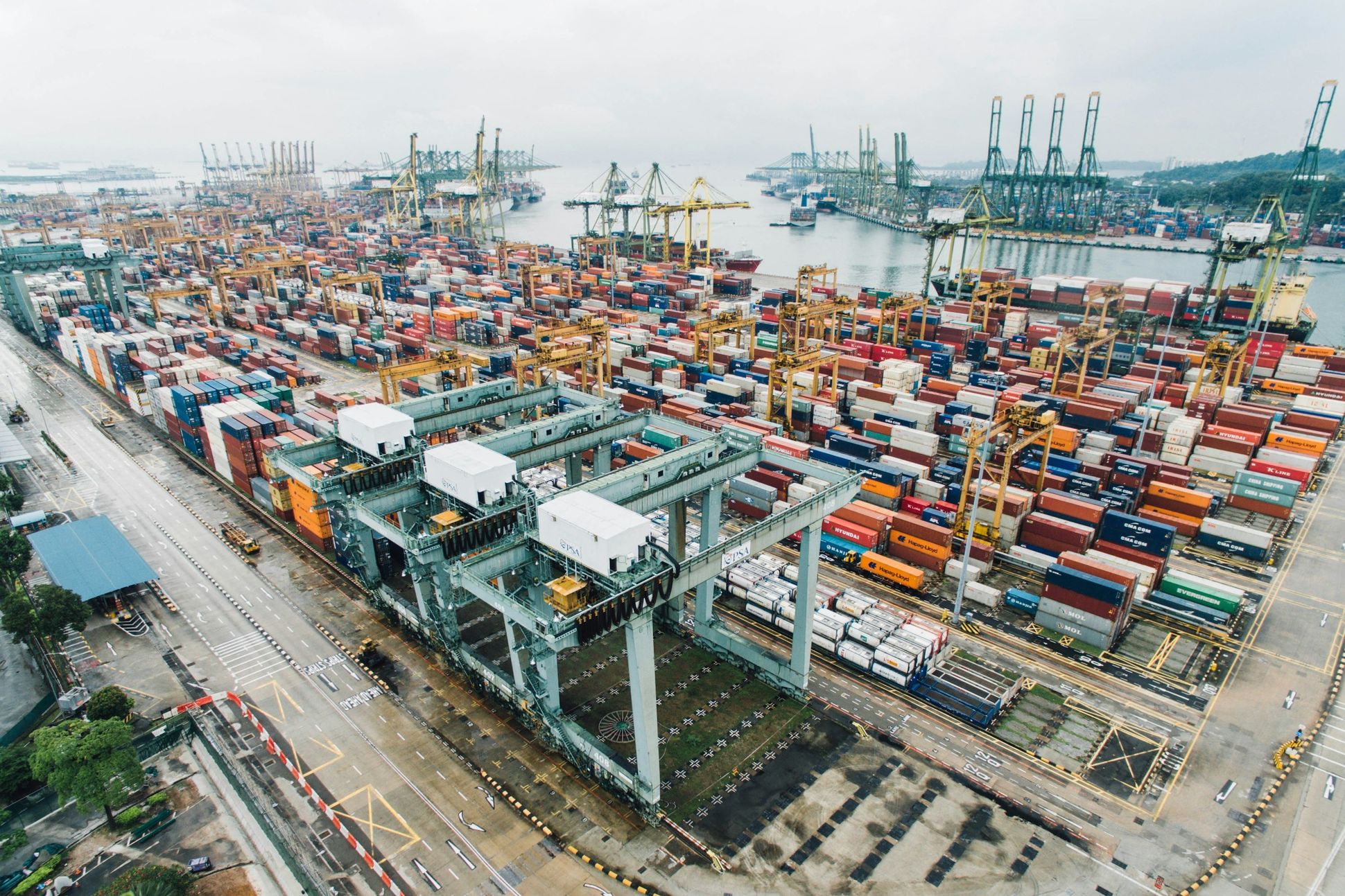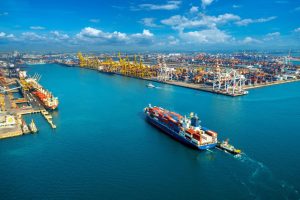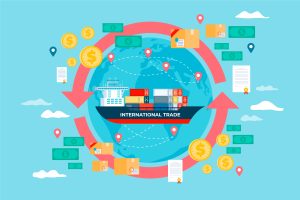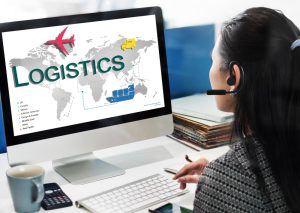Singapore is a country where more than 3 times the value of everything produced is traded internationally. This dynamic economy thrives on strong Singapore’s trade relations, making it a critical link in the global supply chain. Its strategic location, coupled with its forward-thinking policies, has transformed it into a global trade center.
Trade is the lifeblood of Singapore’s economy with a trade to GDP ratio exceeding 300% (Source: ASEAN Briefing, 2023). These strong trade ties have driven economic growth, and strengthened the country’s position as a critical link in the global supply chain.
Regional Partnership
As a founding member of the Association of Southeast Asian Nations (ASEAN), Singapore works closely with its neighbors. This regional partnership allows for smooth trade flow, lower costs, and a stronger regional economy overall.
- Association of Southeast Asian Nations (ASEAN)
Singapore is a founding member of the Association of Southeast Asian Nations (ASEAN), a regional bloc consisting of ten countries in Southeast Asia. ASEAN plays a crucial role in Singapore’s trade landscape. Singapore’s trade relations in the region are characterized by strategic alliances and proactive engagement with neighboring countries. Singapore plays an important role in promoting regional economic integration and fostering cooperation between member countries. The country has facilitated the smooth flow of trade, reduced tariffs and encouraged greater economic synergy in the region through initiatives such as the ASEAN Free Trade Area (AFTA) (Source: ASEAN Briefing, 2023).Additionally, Singapore has established bilateral free trade agreements (FTAs) with key regional partners such as Malaysia, Indonesia and Thailand, further increasing trade opportunities and market access. These agreements not only encourage the exchange of goods and services but also encourage investment flows and technological collaboration, thereby driving economic growth across the region. - Regional Trade Agreements (RTAs)
Singapore is actively pursuing Regional Trade Agreements (RTAs) to further trade and create a more conducive business environment. These agreements eliminate or reduce tariffs and trade barriers, facilitating the flow of goods and services across national borders. The Regional Comprehensive Economic Partnership (RCEP), the world’s largest free trade agreement, covering 15 member countries and opening up new trade opportunities for Singapore.
Global Partnership
Singapore also has global partnerships with major economies like the United States, the European Union, and Japan. This gives Singaporean businesses access to a wider market and foreign businesses a gateway to Asia.
-
FTAs
Singapore’s trade relations extend to all corners of the world, placing the country at the center of global trade. The focus of Singapore’s global trade strategy is an extensive network of FTAs with major countries around the world. In particular, the Comprehensive and Progressive Agreement for Trans-Pacific Partnership (CPTPP) has strengthened Singapore’s trade ties with key markets in the Asia-Pacific region, increasing market access and diversifying trade opportunities (Source: MTI Singapore, 2023). Additionally, Singapore’s world-class infrastructure, efficient logistics system and business-friendly regulatory environment have attracted multinational companies (MNCs) to set up regional headquarters and distribution centers in the country. This not only stimulates trade but also spurs innovation, knowledge transfer and economic development.
-
United States
The United States and Singapore have a close and cooperative trade relationship, which is underpinned by The United States-Singapore Free Trade Agreement (FTA). The agreement has functioned generally smoothly, with trade and investment growing significantly in both directions (Source: Singapore International Trade Adm, 2023). The United States Trade Representative reports that the United States stands as one of Singapore’s most important trading partners (Source: United States Representative, 2024). Bilateral trade between the two nations has consistently grown, exceeding USD 100 billion annually in recent years. Key sectors of cooperation include electronics, machinery, and chemicals.
-
Europe
The European Union (EU) is another crucial partner, with trade exceeding USD 80 billion annually. The EU-Singapore Free Trade Agreement (EUSFTA) further strengthens this economic partnership, fostering collaboration in areas like digital trade and intellectual property (European Commision, 2023). Bilateral trade and investment negotiations with Singapore began in 2010. The agreements are the first to have been concluded between the EU and a Southeast Asian country, and represent stepping-stones to a greater engagement between the EU and the region.
-
Japan
The partnership between Singapore and Japan, dating back to the 1960s, has seen significant growth with Japan being a major source of foreign direct investment (FDI) in Singapore (Source: MOFA Japan). Both nations collaborate in various sectors, including manufacturing, finance, and logistics.
Impact of Trade Relations

Free trade agreements undoubtedly play an important role in driving Singapore’s economic growth. The agreement encourages increased trade volumes, attracts foreign investment and encourages the creation of high-skilled jobs by eliminating trade barriers.
Singapore’s Ministry of Industry and Trade reports that Singapore’s pro-business environment is increasingly providing incentives for foreign companies to establish a presence in the country, thereby making a significant contribution to the country’s economic success (Source: MTI Singapore, 2023).
Strong trade relations act as a magnet for foreign investment, which in turn drives Singapore’s economic development. As a result of its trade partnerships, Singapore offers foreign companies wider market access. This flow of foreign investment creates jobs, drives technological progress, and strengthens Singapore’s position as a global financial hub.
Through active engagement with partners, Singapore secured its position as a key player in the global economy. The country also has driven economic growth and prosperity at home, abroad through strategic partnerships, FTAs and a conducive business environment.
Challenges in Trade Relation
Singapore also faces challenges in addition to its great successes. Trade conflicts could impact other country’s trade-dependent economies. The ongoing trade war between the US and China, as well as rising protectionist sentiments around the world, pose potential threats to the global trading system and could impact Singapore’s trade-reliant economy.
However, Singapore is well positioned to adapt. The country can continue to develop as a global trade hub by diversifying its trade portfolio, maintaining strong partnerships, and taking advantage of new opportunities such as the digital economy. Its unwavering commitment to open markets and collaboration will remain critical in shaping the future of international trade.
Safe Imports to Singapore with Blueray Cargo Singapore’s Expertise
Importing goods to Singapore is an integral part of its trade landscape. It is efficient logistics solutions play a vital role in facilitating smooth import operations. Blueray Cargo Singapore specializes in importing goods from China and Thailand, offering reliable freight forwarding services that ensure the smooth flow of goods.
By leveraging Blueray Cargo Singapore‘s expertise and experience, businesses can navigate the complexities of international trade with ease, thereby increasing efficiency and competitiveness.
Source:
- Singapore International Trade Administration “Succeed in Singapore with the U.S. Commercial Service”
https://www.trade.gov/singapore - Office of the United States Trade Representative “Singapore”
https://ustr.gov/countries-regions/southeast-asia-pacific/singapore - Department of Singapore Statistics “Trade in Service”
https://www.singstat.gov.sg/publications/reference/ebook/trade-and-investment/trade-in-services - Monetary Authority of Singapore “MAS launches Financial Services Industry Transformation Map 2025”
https://www.mas.gov.sg/news/media-releases/2022/mas-launches-financial-services-industry-transformation-map-2025 - Ministry of Foreign Affairs of Japan “The Japan-Singapore Economic Partnership Agreement (JSEPA)”
https://www.mofa.go.jp/region/asia-paci/singapore/jsepa.html - European Commission “EU trade relations with Singapore”
https://policy.trade.ec.europa.eu/eu-trade-relationships-country-and-region/countries-and-regions/singapore_en - ASEAN Briefing “An Overview of Singapore’s Free Trade Agreements”
https://www.aseanbriefing.com/news/an-overview-of-singapores-free-trade-agreements/
ASEAN Briefing “Singapore’s Trade Relation”
https://www.aseanbriefing.com/doing-business-guide/singapore/trade-relationships















